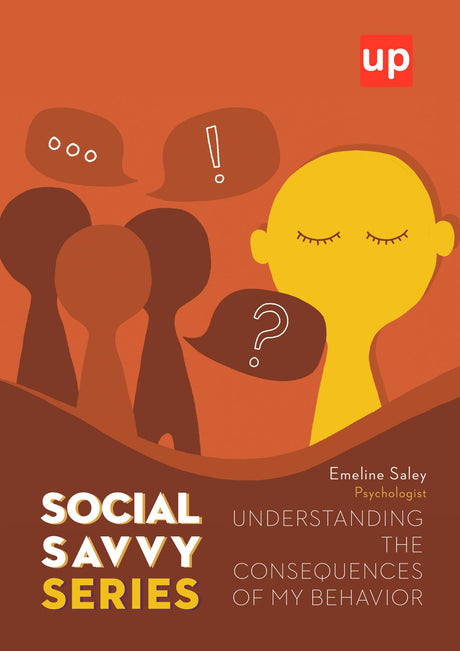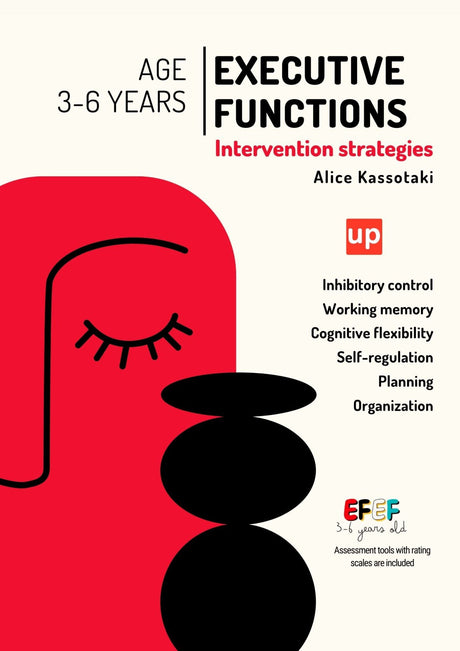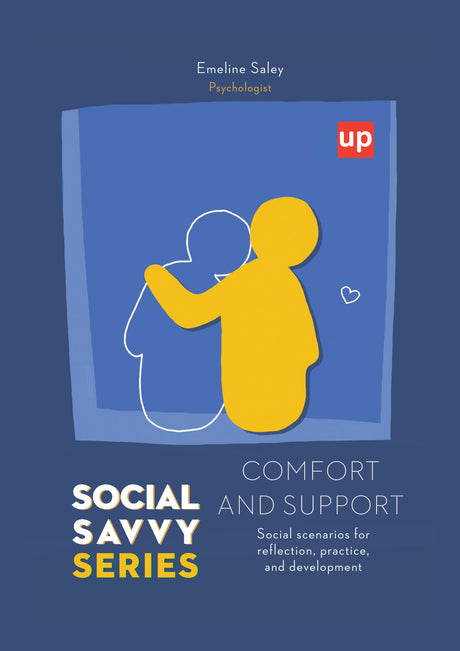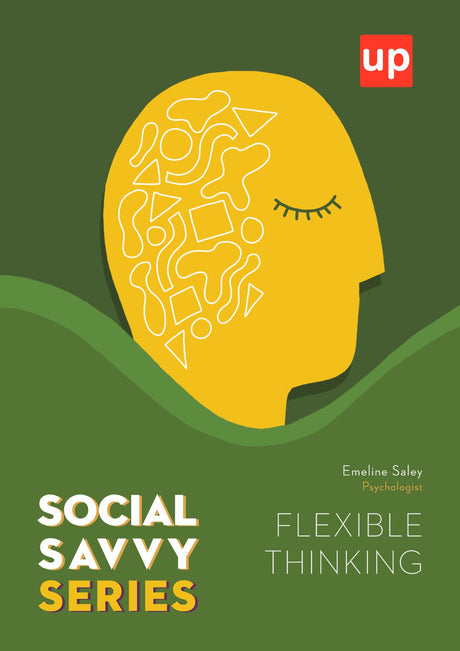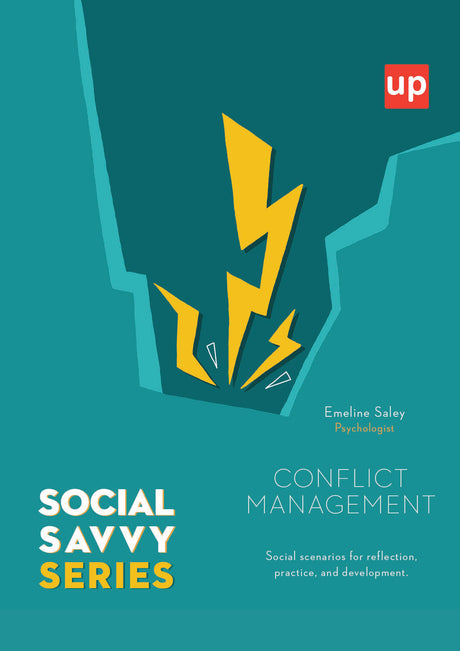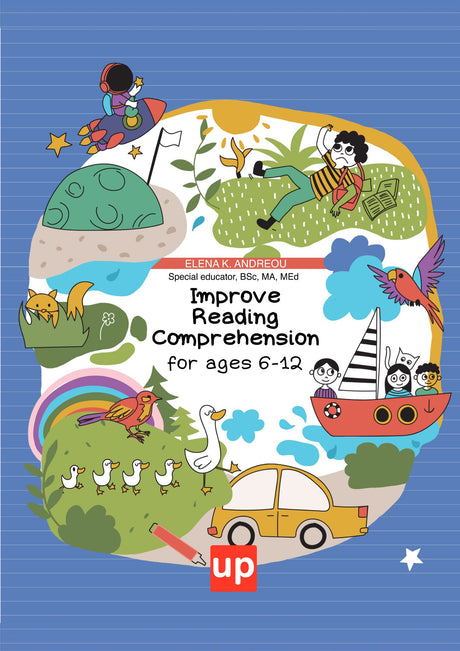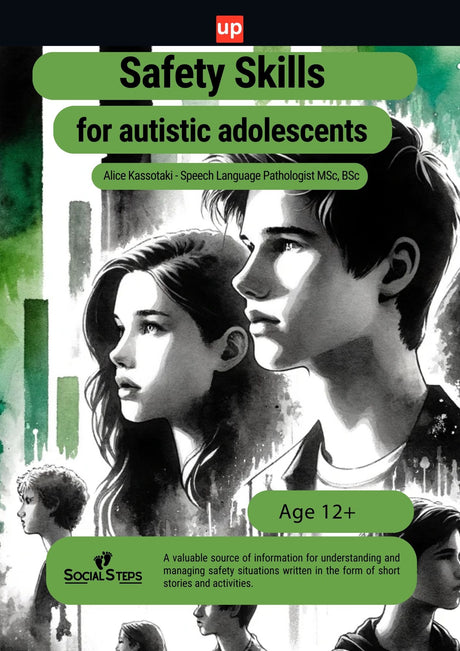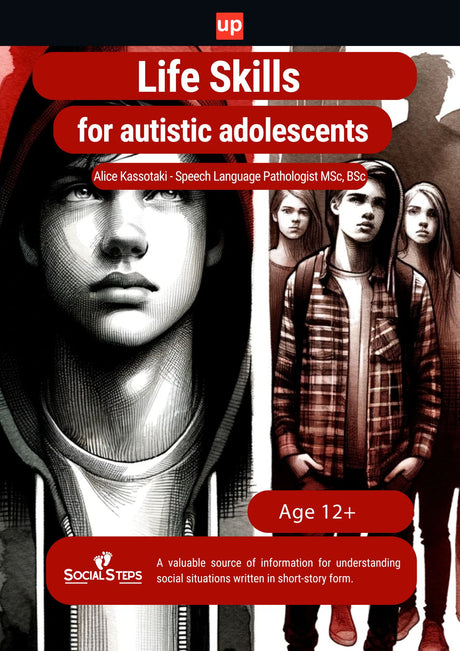Top Outdoor Activities for Autistic Teenager: Fun and Engaging Options
Choosing outdoor activities for autistic teenagers can be challenging. This guide covers sensory-friendly games, sports, creative projects, and more, tailored to their needs, specifically focusing on outdoor activities for autistic teenagers. By engaging in these outdoor activities for autistic teenagers, you can help them develop social skills and enjoy the benefits of nature.
Key Takeaways
- Sensory-friendly outdoor games, such as water play and sand play, enhance motor skills and cognitive development while promoting sensory exploration in autistic teenagers.
- Nature-based activities, including bird watching and nature walks, provide therapeutic benefits that foster emotional regulation and overall well-being for autistic individuals.
- Structured outdoor adventures and independent exploration are critical to developing confidence, social skills, and cognitive abilities in autistic teenagers, promoting both physical fitness and emotional health.
Sensory-Friendly Outdoor Games

Sensory-friendly outdoor games are particularly beneficial for children with autism, as they promote sensory integration, cognitive development, and motor skills. Sensory bins filled with textured items such as water toys and feathers can provide a rich sensory experience, enhancing sensory skills and offering hours of imaginative play. These sensory activities are not only enjoyable but also help in developing fine motor skills.
Water play is another excellent option, providing both sensory stimulation and physical activity. The gentle medium of water offers a wonderful sensory experience, promoting tactile exploration and motor skills. Sand play serves a similar purpose, contributing to tactile stimulation, creativity, and improved motor skills. These activities encourage autistic children to engage in sensory exploration while having fun in a safe and inclusive environment.
Games like Frisbee and Follow the Leader are also fantastic outdoor activities. Frisbee promotes hand-eye coordination and gross motor skills, while Follow the Leader enhances social skills and motor skills by encouraging children to mimic movements. These fun outdoor activities not only provide enjoyment but also foster important life skills and connections, creating a supportive environment for autistic teenagers.
Nature-Based Activities

Nature-based activities offer a unique blend of relaxation and sensory stimulation that can significantly enhance the well-being of autistic teenagers. Engaging in outdoor activities such as nature walks provides a therapeutic tool for emotional regulation and stress reduction. The natural environment promotes better engagement compared to clinical settings, making it an ideal backdrop for sensory exploration and physical activity.
Bird watching is a particularly engaging activity that allows autistic teens to connect with their environment in a meaningful way. It fosters a sense of relaxation and boosts self-esteem, contributing to overall well-being. The visual stimulation provided by observing birds and other wildlife can be both calming and fascinating, encouraging exploration and creative expression.
Participating in nature-based activities helps reduce symptoms of anxiety and promotes emotional regulation. Whether through nature walks, bird watching, or simply enjoying the outdoors, these activities offer a rich sensory experience and promote physical movement and emotional well-being. They provide a perfect blend of fun outdoor activities and therapeutic benefits, making them an essential part of any outdoor play regimen.
Sports and Physical Exercise
Sports and physical exercise are crucial for the physical health and emotional well-being of autistic teenagers. Engaging in outdoor activities like team sports, individual sports, and simple exercises can significantly enhance motor skills, physical fitness, and personal growth. Activities such as baseball, football, basketball, and soccer provide opportunities for developing social skills, teamwork, and communication skills.
Simple exercises like walking, swimming, and biking are excellent ways for autistic teenagers to remain active and improve their physical health. These activities promote coordination, strength, balance, and resilience, contributing to overall physical well-being. Swimming, in particular, is suitable for individuals with sensory sensitivities, offering therapeutic benefits and improving muscular strength and endurance.
Individual sports can also be highly beneficial, providing a supportive environment for autistic teenagers to build muscular strength and develop fine motor skills. Trying multiple sports helps autistic teens discover their strengths and preferences, encouraging exploration and personal growth in relation to autism spectrum disorder.
Overall, sports and physical exercise offer a fun activity that promotes emotional regulation, social interaction, and physical movement.
Creative Outdoor Projects

Creative outdoor projects are a fantastic way to foster emotional expression, patience, and personal growth in autistic teenagers. Engaging in art therapy and crafts activities outdoors allows for creative expression while developing fine motor skills. Projects like homemade bird feeders can be crafted using readily available supplies, offering an engaging and fun activity for children.
Coloring and painting are excellent examples of outdoor creative activities that can significantly improve fine motor skills. These activities provide a calming effect and enhance focus, making them ideal for autistic teenagers. Art projects such as mask-making and using coloring books can be particularly beneficial and engaging, offering an outlet for creative expression and emotional release.
When choosing art and crafts activities, it is essential to consider individual interests and sensory preferences to ensure a supportive and inclusive environment. Craft activities not only promote creative expression but also contribute to cognitive development, skill development, and social interaction, making them a valuable addition to any outdoor play routine.
These recreational activities encourage exploration and imaginative play, offering a wonderful sensory play experience.
Social Interaction Through Group Activities
Group activities play a vital role in promoting social interaction and communication skills among autistic teenagers. Outdoor environments provide ample opportunities for autistic teens to develop social skills through shared experiences. Games like hide and seek encourage rule-following and social interaction, helping children develop essential communication skills.
Treasure hunts are another engaging group activity that fosters teamwork and problem-solving skills. Using maps or visual clues for exploration, treasure hunts provide a fun and interactive way to practice social interactions and critical thinking. Designing an obstacle course is also a great way to encourage social interaction and imaginative play, offering customized challenges that cater to varying abilities.
Engaging in activities like horseback riding and group play can further enhance communication abilities for individuals on the autism spectrum. Multiplayer games are beneficial for developing social skills, promoting a sense of belonging, and reducing feelings of isolation. These fun outdoor activities provide therapeutic benefits and encourage exploration, making them an essential part of outdoor play.
Structured Outdoor Adventures

Structured outdoor adventures create a controlled environment that supports emotional regulation and confidence-building for autistic teenagers. Organized hikes and events provide essential sensory experiences and contribute positively to the emotional well-being of autistic teenagers. These activities foster independence and a sense of accomplishment by encouraging exploration and physical movement.
Gardening is another structured activity that offers a sense of responsibility and accomplishment. It provides a therapeutic tool for emotional exploration and sensory integration, making it a valuable addition to any outdoor adventures. Engaging in structured social and recreational activities enhances the confidence of autistic teenagers and fosters meaningful connections with peers.
Hiking, in particular, boosts physical fitness and encourages social interaction, providing a wonderful sensory experience and significantly enhancing emotional well-being. Structured outdoor adventures offer an enjoyable experience that promotes physical fitness, sensory exploration, and emotional regulation. These activities are essential for the overall development and well-being of autistic teenagers.
Water-Based Activities
Water-based activities offer a rich sensory experience that helps regulate sensory input for individuals with autism. Swimming provides full-body engagement, offering calming and enjoyable sensations that soothe sensory inputs. Water play also enhances core strength and stability due to water’s buoyancy, making it easier to build muscle without heavy impact.
Engaging in water activities improves motor skills, hand-eye coordination, and spatial awareness among autistic individuals. Bubbles can be used to improve sensory awareness and joint attention, providing both sensory stimulation and fun. These activities offer a wonderful sensory experience and promote physical movement, making them an essential part of any outdoor play routine.
The purpose of water play for autistic individuals includes engaging their senses and promoting tactile and proprioceptive input. Whether through swimming, playing with bubbles, or other water-based activities, these fun outdoor activities provide therapeutic benefits and encourage exploration. Water play is a fantastic way to incorporate sensory activities into outdoor adventures, promoting physical exercise and overall well-being.
Books for Outdoor Activities: Enhancing Gross Motor Skills
For those seeking to enhance gross motor skills in autistic teenagers through outdoor activities, "Guide to Motor Skills Development in Autistic Children" is an invaluable resource. This book provides comprehensive insights into the effective strategies and exercises that can be incorporated into outdoor play. It emphasizes the importance of physical movement and sensory integration, offering practical tips for parents and educators to create a supportive and inclusive environment. By focusing on activities that promote coordination, balance, and strength, this guide helps autistic teenagers improve their gross motor skills, contributing to their overall well-being and physical fitness.
Another excellent resource is "100 Activities for Developing Fine Motor Skills," which offers a wide range of engaging activities designed to develop fine motor skills in autistic children. This book is packed with creative ideas that can be easily adapted to outdoor settings, encouraging exploration and imaginative play. From crafting projects to sensory play, the activities are tailored to enhance hand-eye coordination and dexterity. By integrating these activities into outdoor play routines, parents and educators can provide autistic teenagers with enjoyable experiences that foster personal growth and skill development. Together, these books serve as valuable tools for promoting physical health and cognitive development in a safe and inclusive environment.
Mindfulness and Relaxation Outdoors

Practicing mindfulness and relaxation techniques outdoors can significantly enhance the well-being of autistic teenagers. Mindfulness exercises help children with autism enhance their focus and behavioral responses, promoting emotional regulation and overall emotional well-being. Outdoor yoga is a great way to focus on breathing and balance, promoting relaxation and mindfulness.
Mindful walking contributes to grounding and calming, fostering proprioceptive awareness and a sense of connection with the surroundings. Guided relaxation techniques help autistic individuals recognize physical sensations and thoughts without immediate reactions, promoting a state of calm and relaxation. Using a glitter jar can visually demonstrate how swirling thoughts can settle, promoting calmness.
Sound meditations encourage attention to a single sensory input, promoting relaxation and mindfulness. These outdoor activities provide a wonderful sensory experience and promote overall well-being. Incorporating mindfulness and relaxation techniques into outdoor adventures offers a fun activity that boosts self-confidence, emotional well-being, and physical health.
Independent Exploration and Play
Independent exploration and play are essential for the cognitive and emotional development of autistic teenagers. Nature walks stimulate cognitive exploration by allowing autistic teens to observe and learn about their surroundings. Engaging in outdoor exploration enhances children’s connections with their surroundings, particularly benefiting those with autism.
Unstructured outdoor play encourages creativity, exploration, and a sense of independence among children. It provides opportunities for children to take risks, which can lead to improved physical skills and resilience. Encouraging independent exploration is crucial for autistic teenagers to develop self-confidence and cognitive skills.
Participating in outdoor activities can significantly boost self-confidence and enhance cognitive development in autistic teenagers. These recreational activities offer an enjoyable experience and promote emotional exploration, making them an essential part of any outdoor play routine. Independent exploration and play provide a fun activity that encourages imaginative play and creative expression.
Summary
Outdoor activities offer a myriad of benefits for autistic teenagers, from sensory integration and emotional regulation to physical fitness and social skills development. By engaging in sensory-friendly games, nature-based activities, sports, creative projects, social interactions, structured adventures, water-based activities, mindfulness, and independent play, autistic teenagers can thrive in various aspects of their lives.
These activities not only provide fun and engagement but also promote overall well-being, self-confidence, and personal growth. We encourage you to explore these outdoor adventures and recreational activities, creating a supportive and inclusive environment for autistic teenagers. Embrace the power of the outdoors and watch as it transforms their lives.
Frequently Asked Questions
What are some sensory-friendly outdoor games for autistic teenagers?
Sensory bins, water and sand play, Frisbee, and Follow the Leader are excellent sensory-friendly outdoor games for autistic teenagers that enhance sensory integration and motor skills. These activities provide engaging and calming experiences in a supportive environment.
How do nature-based activities benefit autistic teenagers?
Nature-based activities significantly benefit autistic teenagers by providing relaxation, reducing anxiety, enhancing sensory integration, and promoting emotional well-being. Engaging in activities such as bird watching and nature walks can be especially advantageous.
What sports and physical exercises are suitable for autistic teenagers?
Team sports, such as baseball, football, basketball, and soccer, along with individual activities like swimming and biking, are highly beneficial for autistic teenagers as they enhance motor skills, physical fitness, and social interaction.
What are some creative outdoor projects for autistic teenagers?
Creative outdoor projects for autistic teenagers include making homemade bird feeders, engaging in art therapy, and participating in coloring, painting, or mask-making activities. These projects foster creative expression, enhance fine motor skills, and provide emotional release.
How can group activities enhance social interaction for autistic teenagers?
Engaging in group activities significantly enhances social interaction for autistic teenagers by fostering communication, teamwork, and a sense of belonging. These experiences help develop essential social skills in a supportive environment.
References
- American Psychiatric Association. (2013). Diagnostic and statistical manual of mental disorders (5th ed.). Arlington, VA: American Psychiatric Publishing.
- Lang, R., Koegel, L. K., Ashbaugh, K., Regester, A., Ence, W., & Smith, W. (2010). Physical exercise and individuals with autism spectrum disorders: A systematic review. Research in Autism Spectrum Disorders, 4(4), 565-576.
- Pfeiffer, B., Koenig, K., Kinnealey, M., Sheppard, M., & Henderson, L. (2011). Effectiveness of sensory integration interventions in children with autism spectrum disorders: A pilot study. American Journal of Occupational Therapy, 65(1), 76-85.
- Srinivasan, S. M., Pescatello, L. S., & Bhat, A. N. (2014). Current perspectives on physical activity and exercise recommendations for children and adolescents with autism spectrum disorders. Physical Therapy, 94(6), 875-889.
Original content from the Upbility writing team. Reproduction of this article, in whole or in part, without credit to the publisher is prohibited.


